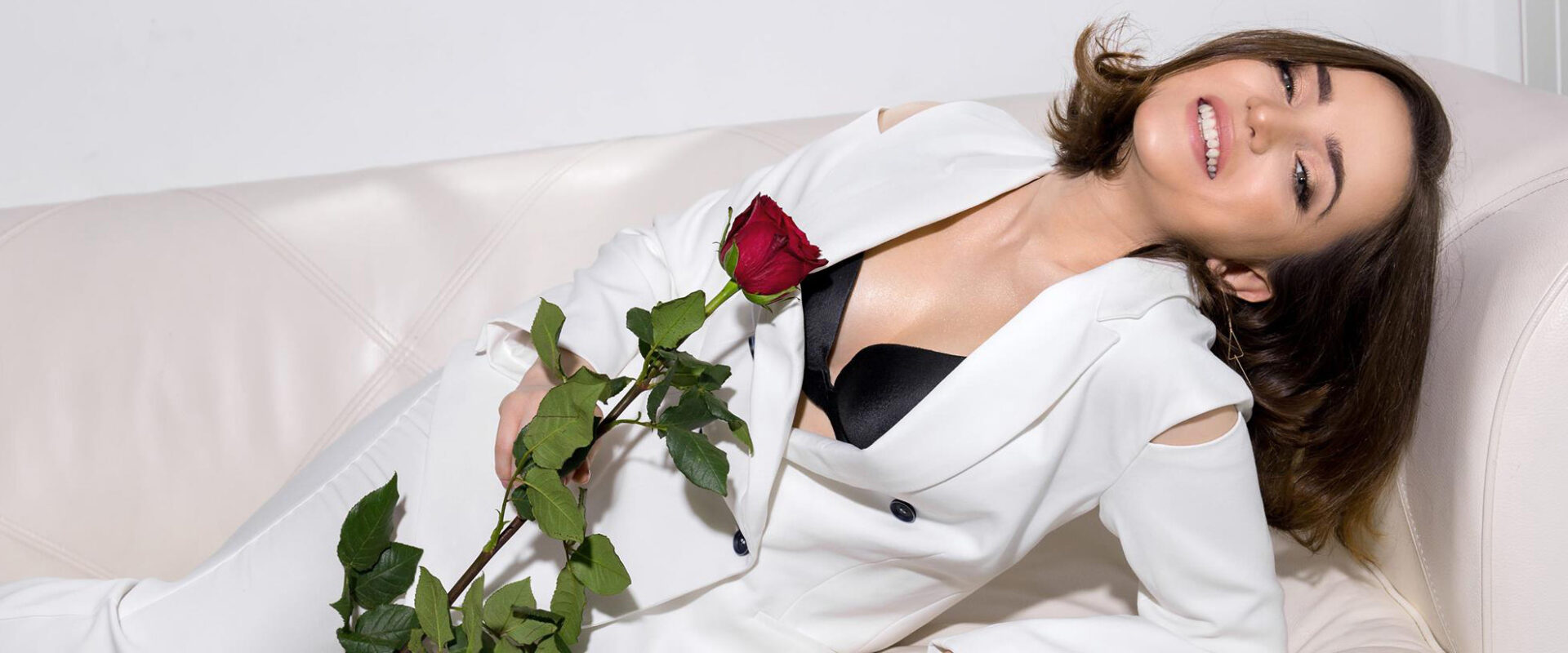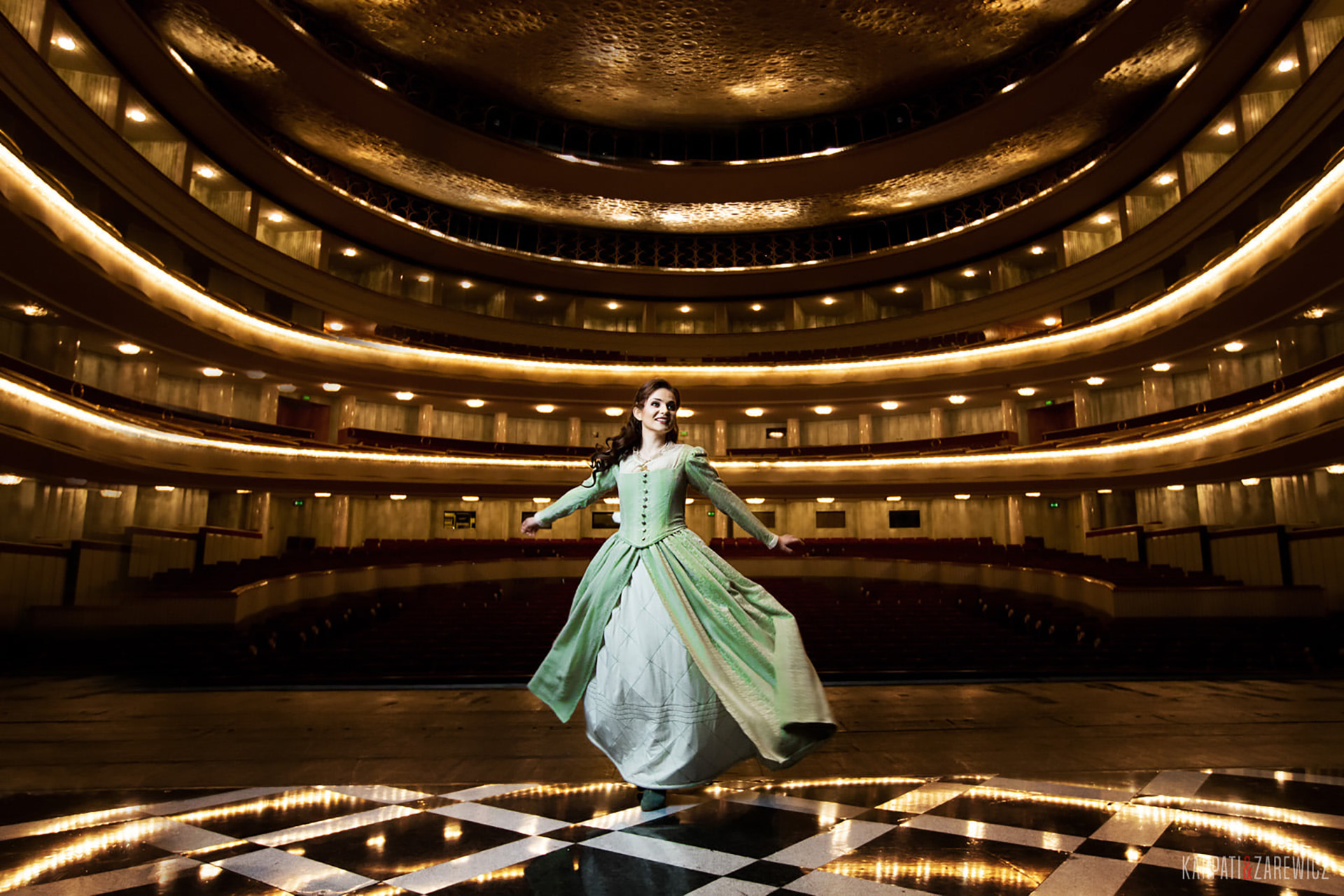 Aleksandra Olczyk: My mission is art, singing for people, and connecting with nature
Aleksandra Olczyk: My mission is art, singing for people, and connecting with nature
Aleksandra Olczyk has gained recognition for performing the Queen of the Night in “The Magic Flute” by Wolfgang Amadeus Mozart. The aria is considered one of the most difficult roles in the entire operatic repertoire. Over the past ten years, she has performed it for audiences at the Metropolitan Opera in New York, the Royal Opera House in London, the Opéra Bastille in Paris, the Teatro Real in Madrid, Deutsche Oper, Staatsoper, and Komische Oper in Berlin, as well as opera houses in Munich, Dresden, Hamburg, Helsinki, Vienna, and many other venues worldwide, including in Asia, Australia, and New Zealand. Jolanta Łada-Zielke talks to the soprano.
When did you realize during your vocal education the Queen of the Night was within your reach?
It was not obvious at first. I started my vocal studies at the music academy without prior preparation in singing, so I was learning everything “from scratch.” It was an incredible adventure for me, and I loved it, but I did not yet have an awareness of my own voice. My professor chose a “safe” repertoire, so I would not tire myself out. Then, one day, I discovered I had what was called a “whistle register” (above high C triple sharp), and I could reach the high notes required for the Queen of the Night. The problem remained with the coloratura, but with determination and daily practice, I developed the agility in my voice over a year and a half. I owe the most here to my professor Helena Łazarska who worked with me consciously, treating the voice like an instrument and showing me how painstaking practice makes it possible to surpass certain limits. I speak openly about this to encourage my younger colleagues who are struggling with similar technical difficulties. My formula for success is hard work supported by unwavering self-belief.
The first Polish opera singer who made an international career was Antonina Miklaszewicz Campi (1773–1822). Vienna’s music lovers were delighted with her performance of the Queen of the Night, though they felt she was less audible in the middle register. Which register is least comfortable for a coloratura soprano?
I think this changes over time. I have sung the Queen of the Night for nearly ten years now, and I have observed the development of my voice. It is actually atypical for the role. It is usually cast with sopranos who have lighter voices, which later often lead to a subrettino repertoire. However, my voice is heavier and darker, which is appreciated by the audience and makes a favorable impression. But that is not my merit — I was simply gifted with it. I feel very comfortable in the middle register and consider it the foundation of the female voice. If you lack good lower notes, the higher ones will not work either. Just like in a launcher, you need solid support to be able to “shoot” upwards. Montserrat Caballé and Maria Callas, whom I am a fan of, both have lower registers that are strong “like a man’s.” The lowest register—the chest voice — is very strong in them, and in the upper register, they have angelic tones, while in the middle, there is immense drama. When Caballé sings the aria of Lucia, you can hear all of this. And what can you call her? A lyrical soprano, a dramatic soprano, or even a tenor? She is simply a versatile singer. I am also striving for this, though I still have a long way to go. But I do not focus on which register is uncomfortable for me. I try to make my singing sound as homogeneous and uniform as possible.
Germans appreciate Slavic voices, but sometimes they consider their “heaviness” a disadvantage.
You need to determine what the problem is and look for a solution. As a beginner student, I listened to recordings of outstanding singers such as Julija Leżniewa and Diana Damrau who, in my opinion, handled coloratura scores excellently. Inspired by them, I tried to develop a similar technique in myself, and eventually, I succeeded. Young people approach opera singing with the mindset of “the way you made me, Lord, that’s how I am.” However, the human voice is an instrument, which the singer works on just like a violinist or pianist, practicing for several hours a day. The pleasure only comes on stage or in concert, during a performance, and outside the stage, it is all about work.
Is the Queen of the Night’s aria really the most difficult opera aria?
I had the immense pleasure of performing various roles, both Baroque, Rossini’s, other Mozart roles, and bel canto pieces. Comparing the Queen of the Night to my other singing experiences, I think there is some truth in it. In fact, I owe my career to being successful in this role. I enjoy singing it; it does not keep me awake at night, but I am not sure if it is the hardest score. I think it presents more of a psychological challenge because you go on stage for just a few, maybe fifteen minutes. This role very difficult technique wise, and people expect flawless performance. We singers, however, are only human, and we do not always manage to sing perfectly. Today’s times have accustomed us to recordings, filters, and enhancers that improve both appearance and voice. Later, in live performances, the audience expects a similar effect. But a person is not a machine. So you need to be mentally resilient and be able to forgive yourself for mistakes that the audience may not forgive, but you must also be ready to give everything. I think this is the main difficulty of the Queen of the Night.
They say the aria “Glitter and Be Gay” from Bernstein’s “Candide” is more technically difficult than the Queen of the Night’s “Der Hölle Rache…”
I have sung it, too, but it is a completely different challenge. Which one is more difficult depends on the individual approach of the singer, their temperament, and their expression. I prefer the Queen of the Night because of the dramatic nature of the character.
Is a singer’s life really “life on suitcases”?
Definitely. I have never had a strong urge for a career; it has just happened, but I have accepted such pace of life. Before the pandemic, I traveled very intensively, singing the Queen of the Night – in a different theater on different days. I also participated in intercontinental tours, spending seven hours on a plane and suffering from jet lag. I can proudly name the places I have visited, but I only remember the hotel and the working atmosphere. I do not know anything about monuments, customs, or cuisine. One day, I woke up, looked out the hotel window, and realized I did not know where I was. During the pandemic, I realized that life was slipping through my fingers, and since then, I have worked differently. Besides singing, I now explore interesting places, meet people, and enjoy every moment.
You have sung the Queen of the Night in all three opera theaters in Berlin.
Yes. I owe a lot to the Komische Oper because they noticed me and took me “out into the world.” After that, I received engagements at the other two opera houses — the Deutsche Oper Berlin and Staatsoper Unter den Linden, which I also have fond memories of. Berlin is an open, colorful city, and I felt very comfortable there.
What do you think of the production of “The Magic Flute” by Jette Steckel in Hamburg, in which you performed recently?
As a singer, I appreciate the director removed the dialogues. For the Queen of the Night, speaking a dialogue before such a technically difficult aria as “Der Hölle Rache” is not a comfortable situation. Besides, I sing almost in a concert setting in this production — from the orchestra pit. The director could not have provided me with more comfortable working conditions. I am grateful to her for such a comfortable environment.
Your repertoire includes Verdi’s heroines — Gilda and Violetta — and Adele from “Die Fledermaus.” There are recordings of your oratorio repertoire, including works by Giulio Caccini, on YouTube. It seems performing Baroque music no longer presents the same challenge as it did during your studies.
Of course, it is easier now because I am aware of my vocal capabilities, and I enjoy returning to those arias. Actually, I would suggest changing the vocal education system so that students do not start immediately with arias and songs. First-year students, who still do not have an awareness of their voice, body, and vocal technique, should not perform anything beyond Vacca and Concone exercises. I doubt anything will change in this regard, as this educational system exists worldwide. Only in private schools, especially Italian ones, first-year students do not sing scores but work on vocal emission. I love my voice; I feel a huge empathy for it, and sometimes it “asks” me to return to those early Italian arias, to exercises, to the basics. I do this happily and always with good results.
Apart from singing, you are passionate about dogs and horses. How do you pursue your hobbies in your free time?
I am a Mother Earth (laughs). Singing is my passion because I love people, and I treat my profession as a mission — a service to people. There is no greater happiness for me than when I manage to touch someone’s soul with my singing, make them happy, or evoke emotions that are hard to experience in daily life. That’s the whole point of what I do. When I bow to the audience, I always place my hand on my heart, which is a symbol of humility and an expression of unspoken words: “I am here for you; I bow deeply in my service.” Nature, so inseparably connected to art and being it in its purest form, is particularly close to me. I am fascinated by the fauna and flora, the language of nature, and in every free moment, I try to delve into this topic. Animals have always been with me. Right now, I have three dogs and a horse. I know their needs and try to satisfy them. In my profession, it is hard to reconcile caring for animals with constant traveling, so I rely on the kindness of close people who take care of them in my absence. Dogs handle separation worse than horses. When I come back after two months away, my horse greets me as if we saw each other just yesterday. I often feel that time flows differently for these creatures. We have a strong bond which is not affected by distance in a negative way. However, if I found out that my animals were suffering because of my lifestyle, I would certainly look for a solution.
Thanks you for the conversation.



